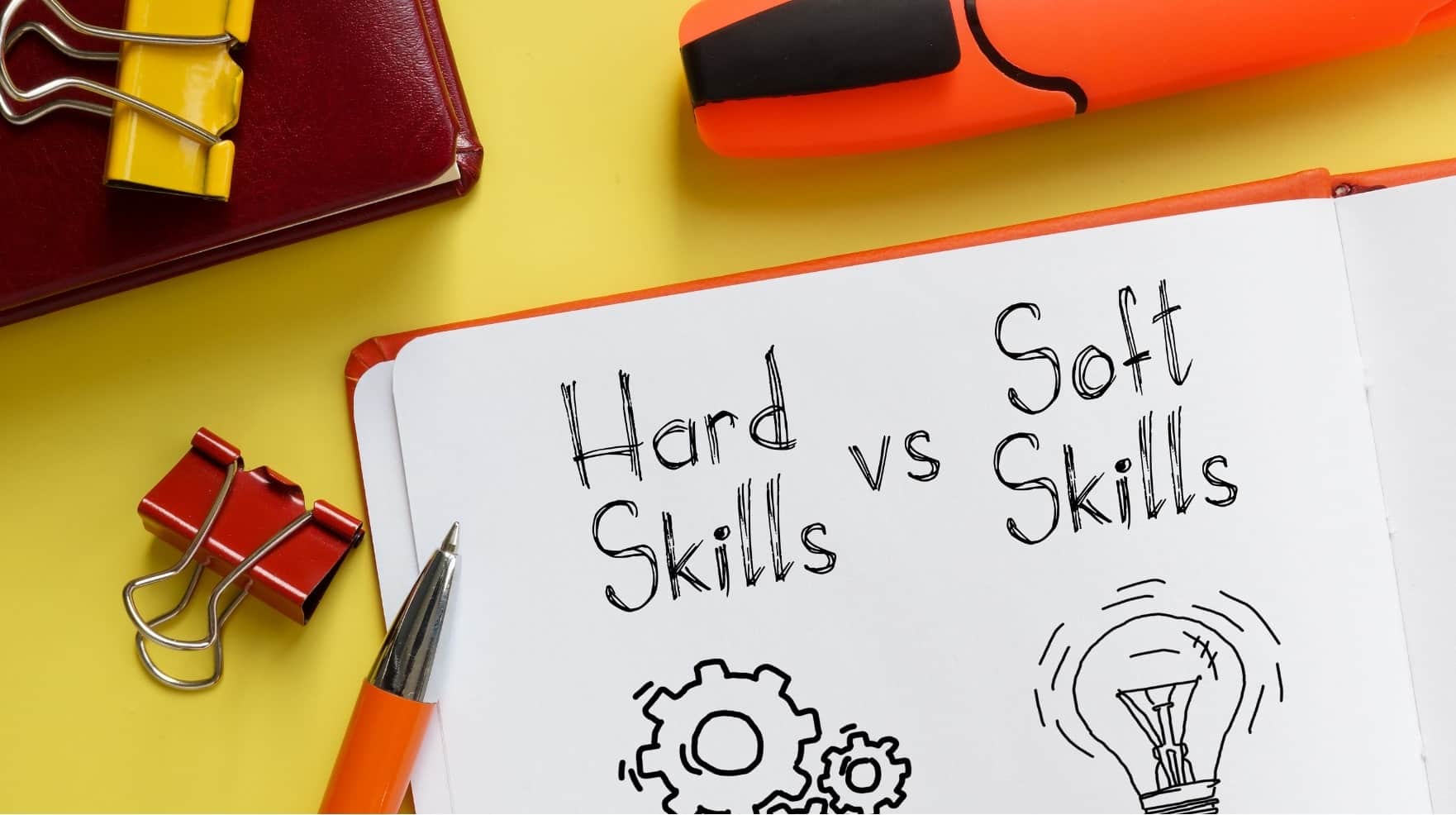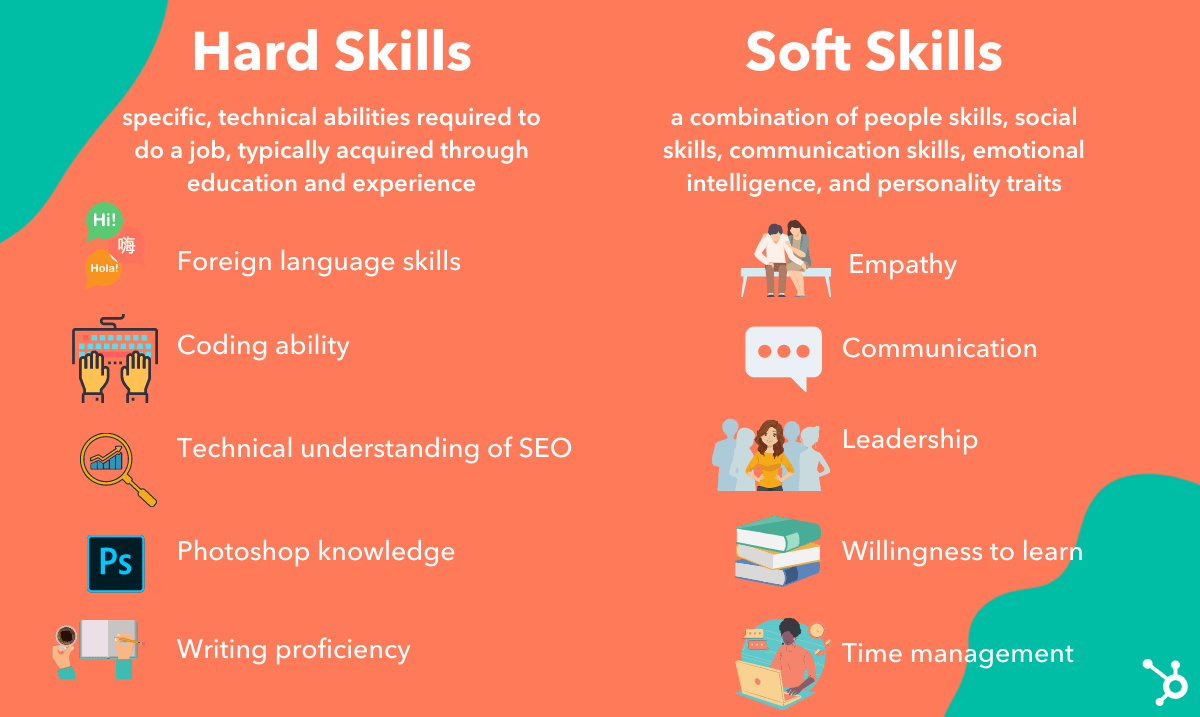Hard Skills and Soft Skills: How to Evaluate a Candidate
In modern recruiting, knowledge of hard and soft skills has become not just a “good thing,” but a critically important factor in decision-making. While employers used to focus primarily on experience and technical skills, today emotional intelligence, stress resistance, and adaptability can outweigh even a dozen certificates on a CV.
So, in this article, we will talk about the difference between hard and soft skills, which ones are more important, how HR and recruiters can effectively test them, and why those who seek balance win today.

What are hard and soft skills?
What’s the difference between soft skills and hard skills?
Hard skills are technical skills and competencies that can be measured, taught, and evaluated.
For example:
- Knowledge of a programming language (Python, Java, SQL);
- Proficiency in Excel or Power BI;
- Certifications in accounting, auditing, or project management (e.g., PMP);
- Experience with CRM, ERP, or CAD systems;
- Driving, working with machinery, and foreign languages.
Hard skill definition is something that can be tested in a technical interview. It’s “what you can do.”

Soft skills are considered interpersonal and behavioral qualities that affect communication, adaptability, and work style. For example:
- Sociability;
- Empathy;
- Critical thinking;
- Teamwork;
- Flexibility and ability to learn;
- Time management.
Soft skills are “how you work.” They are harder to assess, but often determine how well a candidate will fit into the team and company culture.
Comparison: Hard Skills vs Soft Skills
Soft skills | Hard skills |
Tied to the right brain – emotional intelligence, empathy | Tied to the left brain – logic, IQ |
Hard to measure or verify directly | Easy to evaluate via tests or exams |
Depend on the context: team, company, situation | Consistent across roles within an industry |
Developed through life experience | Acquired through training and education |
Take longer to build and are refined over time | Can be learned relatively quickly |
Involve unstructured tasks and responses | Often follow rules or structured frameworks |
Hard skills definition. When are hard skills important?
What are hard skills? Hard skills are essential in technical, highly specialized positions where a mistake can be costly. For example:
- IT specialists (developers, DevOps, QA): without coding or framework knowledge, the job cannot be done;
- Financiers and auditors: certifications, precision, and knowledge of legislation are mandatory;
- Engineers, doctors, production specialists — equipment handling and procedures are critical.
But even here, soft skills start to “take precedence.” A CTO may be an excellent system architect, but without leadership skills, they won’t be able to build an effective team.
When are soft skills crucial?
Soft skills determine success in fields where communication, leadership, and adaptation are key. For example:
- Customer service and sales — without empathy and active listening, even the best script won’t help;
- HR, recruiting, PR, marketing — these functions work with people, not formulas;
- Team and project managers — need strategic vision along with the ability to delegate, motivate, and lead.
Soft skills are especially valuable during times of change, when technical knowledge becomes outdated and adaptability keeps the business moving.
Hard skills meaning. How a recruiter can effectively test hard skills
- Technical tests or cases
Ideal for assessing knowledge and logic. Examples: write code, perform analysis in Excel, build a budget. - Certifications and education
Show the foundation but don’t always prove practical experience. Clarify: “How did you apply this in real life?” - Portfolio, projects, references
Effective in creative and technical roles. Ask: “What did you do independently, and what was a team effort?”
How to assess a candidate’s soft skills
This is more complex due to subjectivity. But there are proven methods:
- Behavioral interviews
Questions like:
– “Tell me about a situation when you had a conflict with a colleague. How did you resolve it?”
– “What did you do when you missed a deadline?” - Case questions
– “Imagine you need to tell your boss an unpleasant truth. How would you approach it?” - Nonverbal assessment
Observe how the candidate behaves during the interview.
How do they respond to difficult or unexpected questions? - Assessment centers (for management roles)
Simulations, group tasks, debates — all reveal real behavior. - 360-degree survey (if colleagues are available)
Great for assessing emotional intelligence, team spirit, leadership style.
Soft skills vs hard skills in resume. Why is it important to find balance?

The most successful candidates today are T-shaped specialists. It’s meaning:
- Horizontal bar — broad soft skills (communication, adaptability, vision);
- Vertical bar — deep expertise in a specific field.
Hard skills vs soft skills examples: an SMM specialist must know how to use ad platforms (hard), but also be creative, flexible, and open to feedback (soft). A sales manager may know CRM, but without listening skills, results will suffer.
Typical mistakes in skills assessment
- Overvaluing hard skills — technically perfect, but toxic in the team.
- Intuition over evidence — “I like them” ≠ “They’ll perform well.”
- Unclear criteria — recruiters or hiring managers assess differently.
Solution: Create a clear competency profile with key hard and soft skills for each role.
How to develop employees’ hard skills after hiring
Finding a candidate with perfect hard skills is rare. Most of the time, HR works with potential — not a finished “product.” That’s why recruiting today is part of a broader talent development process.
Why it matters:
- Technology evolves faster than hiring cycles.
- Skills expire — even advanced knowledge may lose relevance in 2–3 years.
- It’s more cost-effective to train loyal employees than hire new ones every 6 months.
What recruiters can do:
- Identify potential early
Questions like: “What skill have you recently taught yourself?” - Emphasize learning opportunities
Mention available training, certifications, or mentoring during interviews or onboarding. - Collaborate with L&D or managers
Suggest individual learning plans after probation. Track skills in the CRM/HRM system. - Shape learning paths
Use internal experts, EdTech platforms (e.g., Coursera, Google, PMP). For technical roles — simulators, mentoring. - Build a learning culture
Promote stories of professional growth. Share learning digests, course lists, internal events. - Link skills to career tracks
Make progression transparent: “Learn Power BI → apply for Senior Analyst.” This boosts motivation and retention.
How companies can improve soft skills after hiring
There are no perfect people. That’s why more companies choose to hire for potential and train soft skills on the go.
Soft skills are not static. They evolve with experience, culture, and feedback. A technically strong candidate may lack public speaking or conflict resolution skills. That’s not a reason to reject them — it’s a reason to teach.
What companies can do:
- Regular soft skills training
Formats: workshops, simulations.
Topics: emotional intelligence, time management, communication.
Tip: focus on practice, not just theory. - Mentoring and coaching
New hires benefit from mentors; coaching supports leadership development. - 360° feedback
Anonymous reviews from peers and managers to reflect on behavior. - Role rotation or shadowing
Temporary roles build flexibility, empathy, and critical thinking. - Internal communities
Book clubs, debates, public speaking clubs foster communication and soft skill growth. - Gamification
Gamified systems reward growth. Fewer conflicts, higher satisfaction are common outcomes.

How soft skills gain value in remote work
Remote and hybrid formats have changed work — and soft skills have become essential for productivity, trust, and team maturity.
In the office, communication happens naturally — body language, side chats, quick clarifications. In remote work, clarity, autonomy, and empathy become visible and crucial.
Critical soft skills for remote teams:
- Self-organization and responsibility — manage time, priorities, deadlines independently.
- Asynchronous communication — write clearly, document agreements, respond in a timely manner.
- Emotional intelligence — read between the lines, recognize tone, manage reactions.
- Flexibility — adapt to changing tools, tasks, or processes.
- Feedback — essential for alignment, motivation, and growth.
Recruiters should ask:
“Have you worked remotely?”
“How do you stay focused without supervision?”
“How do you respond when a teammate doesn’t reply for two days?”
Instead of a conclusion
In 2025, the companies that win will be those that invest in the list of hard and soft skills — not just search for the perfect external fit, but grow competencies internally.
For recruiters, this means aligning with business goals, applying assessment tools wisely, and acting as strategic partners for both hiring managers and candidates.
Soft skills vs hard skills are not opposites — they complement each other. Recognizing both is no longer optional — it’s the foundation of modern, effective hiring.